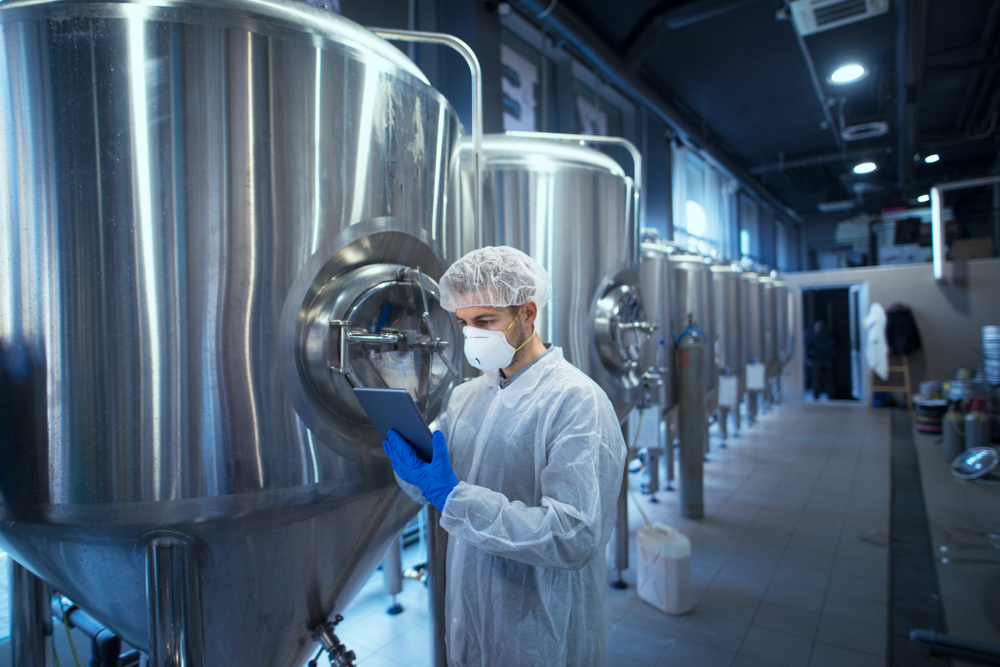A Chemical Production Engineer plays a critical role in the manufacturing and production process within industries that involve chemical processes. These professionals are responsible for overseeing the design, operation, and optimization of large-scale chemical production systems to ensure efficient, safe, and cost-effective manufacturing. Chemical Production Engineers bridge the gap between the laboratory-scale development of chemical processes and their real-world, industrial applications.
This article explores the duties, educational requirements, salary expectations, and industries where Chemical Production Engineers work, as well as the career prospects in this dynamic field.
Key Duties of a Chemical Production Engineer
Chemical Production Engineers are primarily focused on the optimization and supervision of chemical production processes. Their duties are a mix of technical, operational, and managerial tasks aimed at improving process efficiency, ensuring safety, and maintaining product quality.
1. Process Design and Development
- Designing Production Systems: Chemical Production Engineers design, develop, and implement chemical processes to scale from the lab to full-scale production. They develop process flow diagrams (PFDs), piping and instrumentation diagrams (P&IDs), and perform simulations to ensure the process runs optimally.
- Choosing Equipment and Materials: They determine the appropriate equipment (e.g., reactors, separators, heat exchangers) and materials required for chemical production, ensuring that both meet safety, regulatory, and performance requirements.
2. Production Supervision
- Monitoring Daily Operations: Production engineers are responsible for overseeing daily operations, ensuring that all production processes are running smoothly and efficiently.
- Problem Solving and Troubleshooting: If issues arise during production, such as equipment failures or production delays, they diagnose and resolve problems quickly to minimize downtime and avoid financial losses.
- Ensuring Quality Control: They ensure the final product meets specified quality standards by implementing regular checks and maintaining quality assurance protocols.
3. Process Optimization
- Improving Process Efficiency: One of the key responsibilities of a Chemical Production Engineer is optimizing chemical processes to reduce costs, increase output, and minimize waste. This involves fine-tuning parameters such as temperature, pressure, and flow rates to achieve the best possible results.
- Energy Efficiency: They often focus on reducing energy consumption by optimizing heat exchange processes and minimizing unnecessary energy use.
4. Health, Safety, and Environmental Compliance
- Safety Management: Chemical Production Engineers develop and enforce safety protocols to prevent accidents and ensure a safe working environment. They work in compliance with OSHA regulations and other industry-specific safety standards.
- Environmental Impact: They also ensure that the production process adheres to environmental regulations, reducing emissions and waste, and ensuring sustainable practices.
5. Team Collaboration and Reporting
- Cross-Functional Collaboration: Chemical Production Engineers work closely with other engineers, operators, and management teams to improve production and resolve any challenges. They may lead or participate in multidisciplinary teams.
- Reporting and Documentation: They are responsible for creating and maintaining production reports, performance metrics, and safety documentation for internal and external stakeholders, including regulatory bodies.
Education and Qualifications for Chemical Production Engineers
To become a Chemical Production Engineer, individuals must meet certain educational and professional qualifications. Below is a breakdown of the typical educational path and certifications required for this role.
1. Bachelor’s Degree in Chemical Engineering
- Core Coursework: A Bachelor of Science (B.S.) in Chemical Engineering is the minimum educational requirement. Key areas of study include:
- Thermodynamics
- Fluid mechanics
- Heat and mass transfer
- Process control and instrumentation
- Chemical reaction engineering
- ABET Accreditation: It is essential for the program to be accredited by the Accreditation Board for Engineering and Technology (ABET), ensuring the program meets the required industry standards.
2. Master’s Degree (Optional)
- A Master of Science (M.S.) in Chemical Engineering or a related field can provide specialized knowledge, particularly for those interested in advanced process design, management, or research and development.
- An MBA with a focus on operations or project management may also benefit those aiming for leadership roles.
3. Certifications and Licensure
- Certified Chemical Engineer: Some professionals may pursue certifications through the American Institute of Chemical Engineers (AIChE), such as becoming a Certified Chemical Engineer (CChem), to demonstrate expertise in the field.
- Project Management Professional (PMP): For those interested in managing projects, the Project Management Institute (PMI) offers the PMP certification, which enhances project management skills and credentials.
- Professional Engineer (PE) License: Although not always required, obtaining a PE license (after passing the FE exam and completing work experience) may provide career advancement opportunities, particularly in highly regulated industries.
4. Experience
- Entry-level engineers typically need 1-3 years of experience working in production or process development roles before moving into full production management. Experience with process design, troubleshooting, and scale-up operations is key to success in this field.
Industries Where Chemical Production Engineers Work
Chemical Production Engineers are employed across a broad spectrum of industries. Some of the most prominent sectors include:
| Industry | Key Responsibilities | Key Employers |
|---|---|---|
| Chemical Manufacturing | Process design, optimization, and production of chemicals like polymers, fertilizers, and specialty chemicals | Dow Chemical, BASF, DuPont |
| Oil & Gas | Refining, petrochemical production, natural gas processing | ExxonMobil, Chevron, Shell |
| Pharmaceuticals & Biotechnology | Drug production processes, ensuring GMP (Good Manufacturing Practices) | Pfizer, Johnson & Johnson, Merck |
| Food & Beverage | Production optimization, quality control in food and beverage processing | Nestlé, Coca-Cola, PepsiCo |
| Energy & Renewables | Design and optimization of biofuel, hydrogen production, and renewable energy systems | NextEra Energy, First Solar, Orsted |
| Environmental Engineering | Waste treatment, water purification, emissions control | Veolia North America, AECOM |
1. Chemical Manufacturing
- Chemical Production Engineers design and optimize processes used to create products such as plastics, fertilizers, and paints. Companies like BASF and Dow Chemical employ large numbers of engineers to oversee the production of these chemicals at scale.
2. Oil & Gas
- In the oil and gas industry, Chemical Production Engineers are responsible for refining crude oil, producing petrochemicals, and managing natural gas processing. The high demand for process optimization makes this sector one of the highest-paying for engineers in the field. Major employers include ExxonMobil and Chevron.
3. Pharmaceuticals & Biotechnology
- Engineers working in pharmaceuticals design and manage processes for the production of drugs and vaccines. They ensure compliance with stringent regulatory standards, such as GMP (Good Manufacturing Practices). Top employers in this field include Pfizer and Merck.
4. Food & Beverage
- Chemical engineers in this industry focus on optimizing the efficiency of large-scale food production. Companies like Nestlé and PepsiCo employ engineers to help improve the quality and cost-effectiveness of food manufacturing processes.
5. Energy & Renewables
- As the energy sector evolves towards sustainable energy sources, Chemical Production Engineers are involved in the production of biofuels, hydrogen energy, and other renewable energy technologies. Companies like NextEra Energy and First Solar offer opportunities for engineers in this rapidly growing sector.
6. Environmental Engineering
- Chemical engineers in the environmental sector work on water and waste treatment plants, ensuring processes minimize the environmental impact. Employers in this sector include firms like Veolia and AECOM, focusing on environmental sustainability.
Salary of a Chemical Production Engineer
Salaries for Chemical Production Engineers vary based on factors such as experience, location, and industry. Below is a breakdown of salary expectations based on data from multiple sources.
1. National Average Salary
- According to Payscale, the average salary for a Chemical Production Engineer is between $70,000 and $95,000 annually.
- Glassdoor reports a similar range, with salaries typically falling between $75,000 and $100,000, depending on factors like location and job function.
2. Salary by State
| State | Salary Range (USD) | Industries |
|---|---|---|
| California | $85,000 – $120,000 | Tech, Energy, Pharmaceuticals |
| Texas | $80,000 – $110,000 | Oil & Gas, Chemical Manufacturing |
| New Jersey | $85,000 – $115,000 | Pharmaceuticals, Food Production |
| Illinois | $75,000 – $105,000 | Chemical Manufacturing, Food/Beverage |
| Louisiana | $85,000 – $120,000 | Oil & Gas, Petrochemical Plants |
| Florida | $75,000 – $105,000 | Renewable Energy, Environmental |
3. Salary by Industry
- Oil & Gas: $90,000 – $130,000 (due to the complex nature of the industry and high demand for chemical engineers in refining and petrochemical processes)
- Pharmaceuticals & Biotechnology: $85,000 – $120,000 (as engineers in this sector ensure compliance with strict regulatory standards and quality control)
- Chemical Manufacturing: $75,000 – $110,000 (depending on company size and the complexity of the processes)
- Food & Beverage: $70,000 – $100,000 (salary may vary based on company, but the focus is on optimizing mass production)
- Energy & Renewables: $80,000 – $115,000 (Chemical engineers working in renewable energy production, such as biofuels or hydrogen, earn higher salaries as the sector grows)
- Environmental Engineering: $75,000 – $105,000 (with a focus on sustainability and compliance with environmental regulations)
4. Experience Impact
- Entry-Level (0-3 years): $60,000 – $75,000
- Mid-Career (5-10 years): $80,000 – $100,000
- Senior Engineers (10+ years): $100,000 – $130,000 (or more, particularly in leadership or specialized roles)
Final Thoughts
Chemical Production Engineers are vital to ensuring that chemical manufacturing processes run efficiently, safely, and in compliance with environmental and safety regulations. Their duties span from process design and production oversight to troubleshooting and process optimization, making them an integral part of any industrial operation that involves large-scale chemical production.
With a Bachelor’s degree in Chemical Engineering as the foundation, additional certifications, experience, and potentially a Master’s degree can significantly enhance career prospects. Chemical Production Engineers are employed in a wide range of industries, including chemical manufacturing, pharmaceuticals, food and beverage, oil and gas, energy, and environmental sectors.
Salaries in this field are competitive, with $70,000 to $100,000 being the national average, and senior-level engineers earning even more, particularly in high-demand industries like oil and gas and pharmaceuticals. The ongoing demand for efficiency improvements, sustainability, and regulatory compliance across industries ensures a positive career outlook for Chemical Production Engineers in the years ahead.




